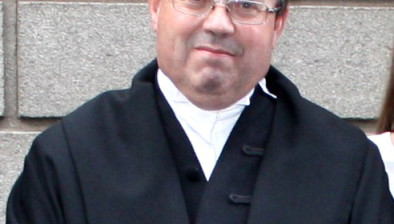Irish lawyers acting for European judges in lawsuit over EU decision on Poland

Irish lawyers are acting on behalf of European judges who are suing the Council of the European Union over a decision to release funds to Poland despite continued concerns over the rule of law.
The lawsuit has been filed in the Court of Justice of the European Union (CJEU) by the Association of European Administrative Judges (AEAJ), the European Association of Judges (EAJ), Rechters voor Rechters and Magistrats Européens pour la Démocratie et les Libertés (MEDEL).
The four groups — the main European organisations of judges — are represented by Irish barristers Carsten Zatschler SC and Emily Egan McGrath BL, assisted by Philip Lee LLP’s partner Anne Bateman and senior associate Maeve Delargy.
The EU Council agreed in June to unblock EU funds for Poland under the Recovery and Resilience Facility, worth around €35.4 billion in total, provided that three “milestones” are reached.
These milestones are: (1) the Disciplinary Chamber of the Supreme Court will have to be disbanded and replaced with an independent court; (2) the disciplinary regime must be reformed; (3) judges who have been affected by the decisions taken by the Disciplinary Chamber will have the right to have their cases reviewed by the new chamber.
However, the four judges’ organisations say these milestones fall short of what is required to ensure effective protection of the independence of judges and the judiciary and disregard the judgments of the CJEU on the matter.
For instance, the CJEU has ruled that the Polish judges affected by unlawful disciplinary procedures should be reinstated at once, without delay or a procedure, whereas the judges say the third milestone would introduce a procedure of more than a year with an uncertain outcome.
In a joint statement, the organisations said the decision “harms the European judiciary as a whole and the position of every single European judge”.
“All judges of every single member state are also European judges, having to apply EU law, in a system based on mutual trust,” they said.
“If the judiciary of one or more member states no longer offers guarantees of independence and respect for the basic principles of the rule of law, the entire European judiciary is undeniably affected.”
They added: “The reason for asking the annulment of the EU Council’s decision is to make explicit the principle that judgments of the CJEU on the subject of the independence of judiciaries should be enforced without delay and in full, and that EU Institutions cannot even partly act incoherently with them should be made explicit by this lawsuit.
“The EU Council decision violates this principle, because there is no full — i.e. unconditional — enforcement of CJEU judgments.
“The goal of the lawsuit is to establish the above-mentioned principle and to prevent a Commission decision to unblock EU funds for Poland until the CJEU judgments are fully and completely enforced.”










